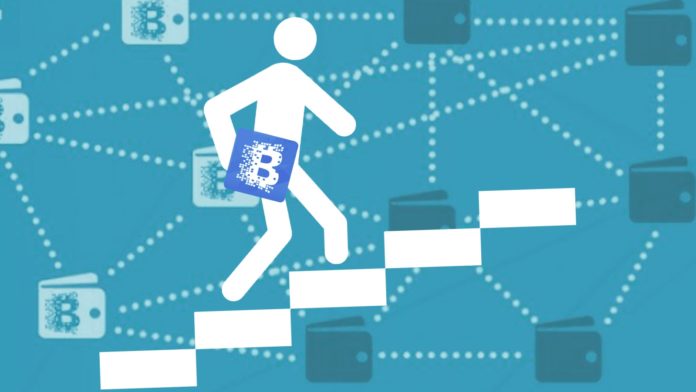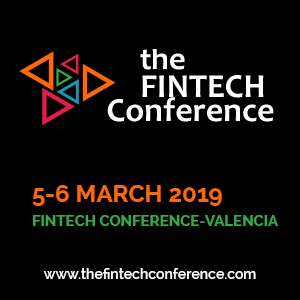(by Olga Kharif, www.bloomberg.com)
In the headlong rush to revolutionize modern finance, blockchain enthusiasts are overlooking one potentially costly problem: their applications, built on open-source code, may actually belong to someone else.
Recently, some of the biggest names in business, from Goldman Sachs to Bank of America and Mastercard, have quietly patented some of the most promising blockchain technologies for themselves. Through mid-November, the number of patents that companies have obtained or said they’ve applied for has roughly doubled since the start of the year, according to law firm Reed Smith.
As the blockchain — essentially a shared, cryptographically secure ledger of transactions — evolves beyond its techno-utopian roots and startups like Chain and Hyperledger open their source code to the public, the risk is growing that patents will turn into powerful weapons in protracted lawsuits over intellectual property, especially in the hands of trolls trying to cash in on the technology’s skyrocketing rise. Increasingly, experts warn established firms will use them to assert exclusive rights over the work of blockchain’s pioneers.
“Open-source code — that doesn’t necessarily restrict the ability to patent the underlying innovation,” said Patrick Murck, a long-time blockchain legal expert who joined Cooley LLP last month. “Anybody who’s investing in the ecosystem, anybody who’s interested in the technology should be worried about this.”
Goldman spokeswoman Tiffany Galvin declined to comment, while Bank of America didn’t respond to requests for comment.
Playing Defense
Mastercard’s Justin Pinkham says, that like many other companies, it’s simply filing patents to defend its blockchain inventions — as it always does, in all areas of its work. The company has filed for more than 30 patents related to the blockchain and cryptocurrencies, he said.
“We have expanded our patent portfolio to protect the company’s thinking, innovations and intellectual property,” said Pinkham, the head of payments innovation at Mastercard Labs.
Because open-source code is freely available to the public, legal disputes have cropped up over who actually owns the rights to the innovations built using that code. Patent wars over Linux — a popular, open-sourced software used in phones, computers and servers — have raged for more than a decade.
In the fledgling blockchain industry, the stakes are rising fast. Originally developed to record bitcoin transactions, the distributed ledger has attracted big-name backers like Blythe Masters — a former JPMorgan banker who’s become one if its most vocal proponents — because of its potential to reshape how financial services, supply chain and health-care industries are run.
Growth Potential
In finance alone, blockchain’s adoption could create a multi billion-dollar market in the coming decade, from just tens of millions today, according to Gil Luria, an analyst at Wedbush Securities.
That’s prompted firms to patent their most lucrative innovations. Companies worldwide applied for or received patents for 356 families of blockchain- or cryptocurrency-related patents in November, up from 180 in January, according to Marc Kaufman, who specializes in fintech intellectual property at Reed Smith, and Questel, a database provider. While the figure doesn’t compare to other, more developed industries, Kaufman expects the number to balloon.
“We are seeing an increase in filings that’s exponential,” he said. “I predict that we’ll see in five years thousands of patents. It’s an emerging risk, no doubt about it.”
‘Harm Innovation’
Until now, many blockchain startups have downplayed the importance of patents and pinned their hopes on wider adoption through open source. Hyperledger, a venture led by companies including IBM, Accenture and Intel, makes its code free for others to use and enhance. Chain, which lets companies use the blockchain to issue and transfer assets, released its code in late October. Even R3 — a consortium of some of the largest banks — made its Corda blockchain available last month.
As such projects have multiplied, some blockchain supporters have suggested open-source makes patents irrelevant. It doesn’t, according to Vitalik Buterin, co-creator of the popular Ethereum blockchain.
Companies could find themselves being sued by one-time collaborators. Large firms could wield patents to muscle into promising businesses developed by today’s startups. Patents could also be used to shut down rivals.
“Blockchain software companies may end up being amalgamated into existing software giants, at which point blockchain patents will just become part of the existing patent war,” Buterin said. “As is the case with all software patents, in my opinion their availability will only slow down and harm innovation.”
Patent Enforcement
Not long ago, BitX, a well-known cryptocurrency exchange in Africa and Southeast Asia, released its code for switching between fiat currencies and bitcoin. Soon after, the startup noticed Bank of America filed a patent for a similar technology, said Marcus Swanepoel, BitX’s chief executive officer.
That put BitX in a bind. If the patent is granted, the bank could theoretically go after BitX or some of its users, or try to charge royalties. BitX’s lawyers concluded the patent would be hard to enforce and the company ultimately decided against going to court.
“The success of those protocols depends on broad-market adoption,” Swanepoel said.
In another worrisome sign, Goldman recently quit R3, people familiar with the consortium said last month, and others may soon follow.
To forestall potential disputes, some firms like Blockstream have made patent pledges, promising its own patents will be available to others for free.
Others are working to set up a patent pool, where members can cross-license each other’s patents. Cooley’s Murck points to Open Invention Network as a model. Launched in 2005, OIN was set up to cross-license and buy up Linux-related patents. OIN is now considering buying up blockchain-related patents as well, according to CEO Keith Bergelt.
“We are creating a patent non-aggression environment,” he said.
Nevertheless, good intentions may mean very little when push comes to shove.
“I would take people at face value, that they’d take patents without intending to assert them,” Reed Smith’s Kaufman said. But, “if you are part of a public company and companies infringe your patents, you may have an obligation. There have been many, many patent cases based on patents that were initially considered defense patents.”






























